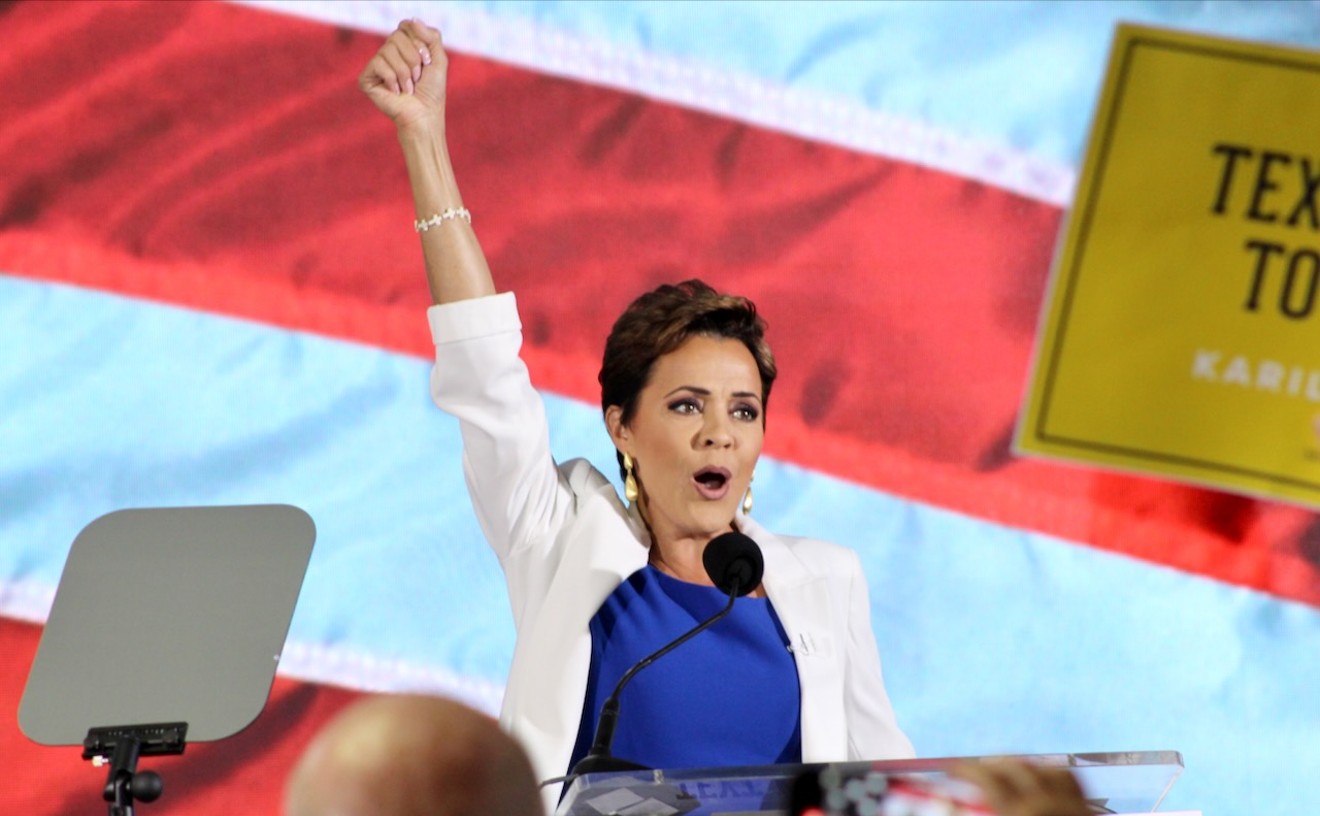He loved power. Without it, Ruben Ortega was just an ordinary man. He was possessed of neither dazzling wit nor overwhelming intelligence. His clothes were nondescript. His lack of sophistication and general knowledge was surprising even for a police officer.
But as chief of one of the ten largest police departments in the country for a decade, Ortega was transformed into a very powerful and dangerous man, indeed.
From the start, he was extremely secretive--some might even call it paranoid. He ran his police department with an iron fist and the terror that all paranoids have for outsiders and strangers.
Having risen through the ranks as a public relations specialist who curried favor with politicians, Ortega didn't like street cops. He was never comfortable in their presence. Once Ortega was named chief, he fired these foot soldiers at his whim. On one occasion, he actually referred to them publicly as "dopers and thieves." So don't expect any sad songs for Ortega from his troops. Most of them long ago learned to despise and fear him.
He was a man who embarked knowingly on a cynical, dangerous power trip. His chief problem now may be that he doesn't realize his journey has ended.
Ortega has always acted as though the entire concept of civil liberties was alien to him. He was incapable of allowing any honest disagreement to co-exist within his own department.
He was constantly on the alert for ways to attract attention to himself. His continuing strategy was a full-court press of self-promotion to the point where it would finally get him the adulation he felt he deserved.
It culminated with AzScam. But there were so many ugly things that went down before.
There was the case of the so-called Seventh Avenue Seven which Ortega personally blew up into a major departmental crisis.
Seven cops staged an after-hours beer bust under the Seventh Avenue Bridge in 1982 and for that Ortega fired them. All of them had clean records. They hired lawyers, and after a while, all eventually got their jobs back.
When the case came up for hearing, it was determined their rights had been trampled on by their boss. They were the first of a series of officers who were fired and then hired back at a cost to the city once estimated at $1.2 million.
All this because Ortega wasn't content with running just the police department. He tried to run everyone and everything else in the city, too.
There was his heavy-handed attempt to crush the police department union.
One day in 1985, Mike Petchell, the union head, gave this testimony under oath to the Civil Service Board.
"He said I could have any job I wanted on the police department if I would sell the union members out to him," Petchell testified.
For years, Ortega also hounded the Phoenix Fire Department.
Pat Cantelme, the union head, was a prime target. Cantelme was among a group of four firefighters indicted on federal charges of cocaine possession.
There were many who believed that Cantelme was an add-on indictment, designed to create extended media coverage of the case.
This entire drug investigation was conducted by the Phoenix Police Department, rather than by the federal drug enforcement agency. This was a precursor, in a way, to AzScam, another instance when a police investigation should clearly have been handled by federal authorities.
Cantelme waited six months to go to trial in 1983. On the day before the trial was to begin, the U.S. Attorney's Office went into court and asked to drop the case.
Cantelme had plenty to say about it.
"I was indicted two weeks before the district system election," he said. "The timing was not accidental."
Cantelme explained that Ortega went after him because the firefighters' union was the largest financial contributor to the political group that switched the Phoenix City Council over to the district system.
As always, Ortega was coming to the aid of the power structure, using his office as a political enforcing arm of the establishment. When the police operate this way in Europe or South America, they call it fascism.
Some tactics of Ortega's police resembled those of the Marx Brothers or the Three Stooges.
Alan Brunacini, the fire chief, was followed for months by Ortega's cops in an attempt to build a case against him. The cops later claimed they suspected Brunacini was stealing when he purchased a thirty-year-old fire truck, which he worked on in his backyard as a hobby.
One day, the police department organized-crime unit served search warrants on the fire chief for an employee's sick-leave file. They had taken it upon themselves to find out whether firefighters were taking too many sick days.
A week later, they came back to serve Brunacini four more search warrants for more sick-leave files.
It was harassment of the fire department, pure and simple. There were those who believe it was also Ortega's way of showing Fire Chief Brunacini who had the most power.
Ortega proved something everyone already knew: Police carry guns and have the power to arrest. But we all knew that from the start.
Duane Pell, who was a firefighter 22 years before he became a member of the Phoenix City Council, put it this way: "Ortega is a very power-hungry man." Some sickening events were triggered by Ortega's campaign against the fire department. This was one of them:
On July 24, 1984, Dave Franks, then 37, a veteran paramedic with the fire department, left the fire station to drive his car to a restaurant to have breakfast.
At the intersection of Cave Creek and Cactus, Franks' car was struck broadside by a truck whose brakes had failed. Franks died less than an hour later.
The emotional reaction to his death was so great that all the firefighters who responded to the accident were sent home for the day.
Within an hour after the firefighter's death, police called the Medical Examiner's Office and requested a drug screen for cocaine.
The police used the excuse that the dead man's name had come up in the cocaine investigation. Actually, it hadn't.
If it turned out that the firefighter had a trace of cocaine or alcohol in his blood, this would be justification for the investigation.
The test was performed and no trace of drugs was found. Insensitive events like this occurred because of the atmosphere created by Ortega. Members of his entire department were alerted to Ortega's belief that they were performing with efficiency if they could embarrass the fire department.
On this last occasion, Ortega was compelled to apologize at the direct order of the city manager, Marvin Andrews.
And always, Ortega was the ultimate grandstander. Can anyone forget the Phoenix Suns drug caper?
On that day, Ortega was so pleased with himself that he invited the television cameras down to the police station so he could outline his drug case against the Suns.
There wasn't just drug trafficking. There was also the prospect of gambling and fixed games in the National Basketball Association. Since the Suns' players indicted went back more than a ten-year period, everyone assumed, thanks to Ortega, that an explosive story was about to break.
The whole case fizzled. Not a single player even went to trial.
But there was a tragic piece of business that occurred to make us forget Ortega and his Pink Panther detective tactics.
Johnny High, for years an outstanding backcourt player for the Suns, died mysteriously in an auto accident. In a state of depression over the case, he had been drinking and ran his car into a pole after leaving a bar in the ChrisTown shopping center.
Ortega detested reporters and denied them access to what were public records at every turn. On at least two occasions, he turned over records only after being ordered to do so by the courts.
The only police records that were being made available were those Ortega wanted released. In the end, he was running a virtually closed department.
The only reporters who had access to Ortega were those few he regarded as politically safe. Interestingly enough, Richard Romley, the county attorney and Ortega's stooge in AzScam, has already adopted a similar attitude toward the press.
Ortega was an implacable enemy to anyone who disagreed with him. But to the wealthy and well-connected, Ortega was a shameless toady, eager to cozy up and sit at their table or join them over lunch at their service clubs.
Any discussion about Ortega's running for mayor is a mindless exercise, perhaps brought on by the heat of summer.
You must discount any talk of his being elected to office. Such a thing is not in the cards. As chief of police, Ortega has created enough sworn enemies in the police and fire departments alone to ensure his defeat at any election.
It is sadly amusing that the only political figure to step forward to embrace Ortega to this point has been Burton Kruglick, titular head of the Republican party.
Kruglick wants Ortega to run for mayor on the Republican ticket. Kruglick knows so much about the political realities that he even ran for mayor the last time around.
According to my own exclusive survey, such a candidacy would give Ortega two votes: his own and Kruglick's. This total would be about a dozen or so less than the exciting turnout Kruglick received in the last mayoral election when he tried to unseat Terry Goddard.
I promise you that this survey is every bit as accurate as those that appear weekly in the Arizona Republic and are actually conducted by walking up and down the bar at Durant's during the cocktail hour on Friday evenings.
"Who will keep us safe from Ruben Ortega?" asked Linda Nadolski, the city councilmember.
According to Ortega's most recent version, it was this remark that exasperated him to such a degree that he felt obliged to quit his $100,000-a-year job.
There were other things Nadolski might have asked.
She might have questioned where the $1 million in funds to conduct the AzScam investigation actually were spent.
I find it amazing that anyone believes that all that money was expended in bribing a few legislators.
Someone might have asked why such an all-out effort was made to drag Sam Goddard, head of the Democratic party, into the trap.
They might have asked, too, why an attempt was made to drag Ortega's old adversary Pat Cantelme into the scandal.
There are some things about the whole operation that remain troubling. This is no defense of the legislators who took money.
But if crime is rampant in the streets and gangs are conducting drive-by shootings every night of the week, why was $1 million spent by the police to create a whole new category of crimes?
And so now, Ortega bemoans the fact that the legislature doesn't like him.
Even someone as obtuse in the art of human relations as the tigerish Ortega is finally coming to realize a simple but immutable truth.
He finally overstepped his bounds. He thought AzScam would render him untouchable. His sense of balance was so far off that he didn't realize no one would thank him for creating a whole cast of new criminals.
So Ortega is gone. That leaves only County Attorney Romley left holding the bag for the AzScam sting. One wonders what goes through Romley's mind these days.
Here is a county attorney supposedly so wary of conflicts of interest that he refused to prosecute a killing at a local Smitty's store.
Romley told us that a conflict had been created because some of his employees worked part-time at Smitty's. He didn't bother to explain why that same conflict of interest doesn't exist when it comes time to prosecute people who cash bad checks at Smitty's.
Why didn't Romley realize that the injection of all that bribe money into an election campaign might actually change the outcome of the vote in some districts?
Is this how a county attorney is supposed to act during an election year? Previously, it was always thought that one of the county attorney's chief duties was to protect the sanctity of the ballot box.
When the police operate this way in Europe or South America, they call it fascism.
Some sickening events were triggered by Ortega's campaign against the fire department.
Any discussion about Ortega's running for mayor is a mindless exercise, perhaps brought on by the heat of summer.










